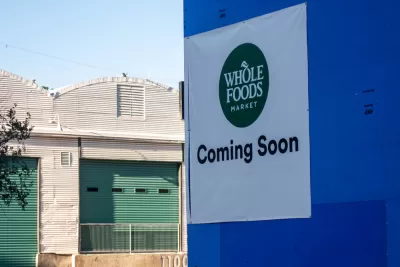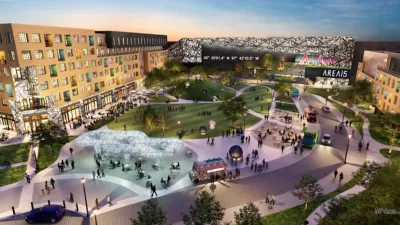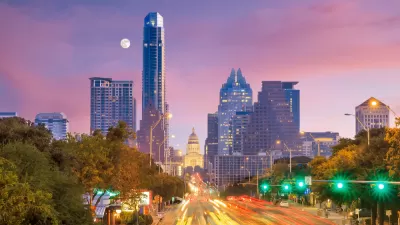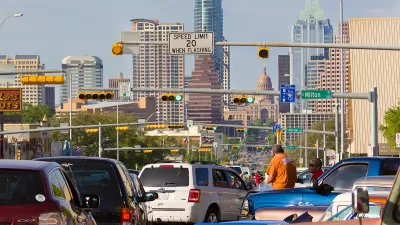The Texas state capital’s “right to return” law was delayed by the pandemic, but Austin is now taking applications for longtime low-income residents to find housing in gentrifying neighborhoods.

“The City of Austin says it will give people from gentrifying neighborhoods priority in the application process for more than two dozen homes it's selling to low-income families,” reports Audrey McGlinchy for KUT.
“This is the first time the city plans to use what it calls a ‘preference policy,’ which was approved by council members in 2018,” according to McGlincy. Planetizen shared news of the new policy in September 2021, when the city identified a development site for the program. The deployment of the law, originally intended for late 2019, was delayed by the pandemic.
“To benefit from the program, people first need to be making less than Austin's family median income; for a single-person household that amounts to $69,250 a year,” according to McGlinchy. “Additionally, people need to prove they've been affected by gentrification or that they have generational ties to the city. That can mean they live or have lived — as far back as 2000 — in a neighborhood in the process of gentrifying; that's the process in which wealthy people move to a historically middle- or low-income neighborhood and housing costs rise.”
A study published in 2018 by researchers from the University of Texas is informing the city’s assessment of gentrification around the city.
More details on the new right to return law and the properties available in this first wave of applications can be found in the source article below.
FULL STORY: Austin says it will sell city-owned property to families affected by gentrification

Maui's Vacation Rental Debate Turns Ugly
Verbal attacks, misinformation campaigns and fistfights plague a high-stakes debate to convert thousands of vacation rentals into long-term housing.

Planetizen Federal Action Tracker
A weekly monitor of how Trump’s orders and actions are impacting planners and planning in America.

Chicago’s Ghost Rails
Just beneath the surface of the modern city lie the remnants of its expansive early 20th-century streetcar system.

Bend, Oregon Zoning Reforms Prioritize Small-Scale Housing
The city altered its zoning code to allow multi-family housing and eliminated parking mandates citywide.

Amtrak Cutting Jobs, Funding to High-Speed Rail
The agency plans to cut 10 percent of its workforce and has confirmed it will not fund new high-speed rail projects.

LA Denies Basic Services to Unhoused Residents
The city has repeatedly failed to respond to requests for trash pickup at encampment sites, and eliminated a program that provided mobile showers and toilets.
Urban Design for Planners 1: Software Tools
This six-course series explores essential urban design concepts using open source software and equips planners with the tools they need to participate fully in the urban design process.
Planning for Universal Design
Learn the tools for implementing Universal Design in planning regulations.
planning NEXT
Appalachian Highlands Housing Partners
Mpact (founded as Rail~Volution)
City of Camden Redevelopment Agency
City of Astoria
City of Portland
City of Laramie





























